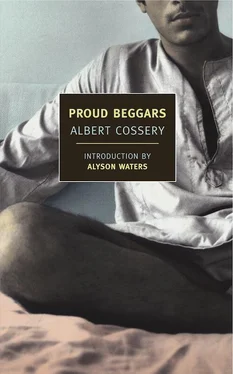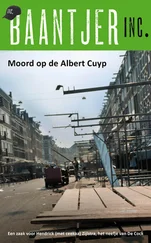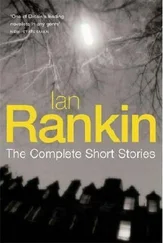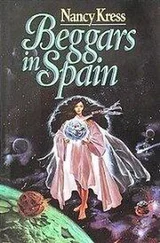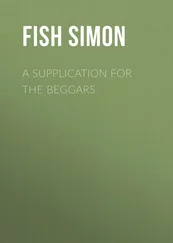His mind relaxed at this amusing idea, and El Kordi could no longer resist the call of the outdoors; he had played the judge in his chambers long enough. He rose from his chair.
“Ezzedine Effendi!”
This was his office supervisor, a nearly blind old man. His enormous glasses made him resemble a prehistoric animal. With his nose glued to the dossier on which he was working, he asked in a resigned tone, “What is it?”
“I’m going out for a while.”
“Don’t worry, my son. Believe me, we’ll surely miss you.”
These ironic words were not calculated to change El Kordi’s mind. He’d long been accustomed to these insolent remarks. He was well aware that his bureau chief considered his departure a blessing; his presence could only harm the smooth functioning of work. He set a bad example for his companions in misfortune.
“Peace be with you!”
“Don’t feel obliged to come back,” said Ezzedine Effendi. “Take your time.”
El Kordi shrugged and left the room without looking at his colleagues slumped in their chairs.
Deep down, the hope for a revolution was only a palliative for his boredom; once in the ministry gardens, safe from his tormentors, El Kordi thought no more about it. The spring sun and the warmth of the air gave birth to sensual ideas in him, and he stepped up his pace. To his desire to see Naila again and to sleep with her was added his curiosity to learn something more concerning this enigmatic, senseless crime. After all, he was involved in it; he couldn’t forget that. His interrogation by the police inspector had given him a taste for those risky conversations in which he seemed to be flirting with a danger far more entertaining than anything his wild imagination could possibly concoct. The inspector was entirely serious when he questioned him. El Kordi puffed up his chest at the memory of this encounter: for his first experience, he was sure he had carried off a crushing victory over the representatives of authority. He was ready to battle this ignorant officer once again. He feared no one. Let them arrest him if they dared!
He was filled with sudden amazement. It seemed he was thinking about the inspector without animosity or rancor, but rather with a slightly troubled joy, a sadistic pleasure. “Strange!” he said to himself. Until now his feelings for Nour El Dine were dictated by the same unvarying hatred that he felt for all those who personified power and injustice, whether immediately or remotely. Suddenly he had discovered an extraordinary fact: Nour El Dine wasn’t simply a vile policeman, he was also a man prey to desires and torments that were linked, despite his foul job, with the infinite distress wherein the mass of humanity struggled. He thus acquired a new face, and it was this face that El Kordi thought of with disturbing emotion. He tried to remember one peculiar incident during his interrogation that had struck him as going beyond the bounds of simple police routine. What was it? Oh yes, the inspector had begun to speak to him in English, a language that they alone understood. For what reason? There was something truly ambiguous in that conversation in a foreign language, as if Nour El Dine, abandoning his interrogation, had wanted to create a bond of dubious intimacy between them. El Kordi recalled his delighted air, the suave tone of his voice — a confidential tone in complete contrast to his manners up till then — when he had spoken of his relations with young Naila. For a moment, he’d had the impression that the inspector had stepped out of his role of obtuse functionary to become a human being eager to please and to seduce. To seduce him: that was it! By heavens, now he understood everything. Nour El Dine, the police inspector, the dignified symbol of authority, was only a common pederast.
While speculating on the humorous value of his discovery, El Kordi crossed the bourgeois ministry quarter, entered a maze of populous alleys, and, without realizing it, found himself in front of Set Amina’s house. Along the way he had paid no attention to the numerous social injustices that usually saddened his gaze with their monotonous repetition. The thought that the police inspector was a pederast gave him such great joy that he forgot all of his ill feelings toward the power of the rich. The fear he had experienced during these last days — without daring to admit it — was transformed into extravagant, childish optimism. Certainly no pederast was going to frighten him. He was now eager to meet Nour El Dine. As he knocked at the door of the brothel, a satisfied smile illuminated his face, which was usually deceptively reserved.
“El Kordi Effendi!” exclaimed Zayed. “By Allah! What are you doing here? The house is closed; we’re no longer working.”
“This is a simple courtesy call,” answered El Kordi. “Let me in.”
“We’re being watched closely. No one saw you?”
“No, no one saw me. Calm down, I made myself invisible.”
“All right, come in quickly. The police have their eye on us.”
El Kordi entered and watched as Zayed closed the door.
“How is it that you’re not already in prison?”
“Now, now, El Kordi,” said Zayed in an extremely frightened tone. “None of those jokes, I beg you. They might hear you.”
“Who?”
Without answering, Zayed looked at him reproachfully and disappeared down the hall with alarming speed, as if he had just been bitten by a serpent.
El Kordi remained standing in the waiting room, rather satisfied with his bad joke. It seemed like years since he had been there, although nothing in the room had changed: the table and the wicker chairs were still in the same place. Even Set Amina seemed not to have moved since that fateful night when the police had invaded her house. El Kordi glimpsed her in the shadows, still sitting on the couch, one hand resting on her pale cheek, offering the spectacle of deepest desolation.
He approached her.
“Greetings, woman!” he said, bowing. “Your worries are over; I am here to defend you.”
She had clearly seen him enter and chat with Zayed, but she was playing the part of one still too prostrate to take an interest in the deceptive bustle of this world.
“It’s you?” she said, looking at him as if he were a ghost. “You’re crazy to come here. They forbade me to receive clients. You want my death?”
“I’m not here as a client, woman! I’ve come to see my fiancée.”
“His fiancée! Listen to him, would you!”
“But I mean it, exactly, my fiancée! Perhaps you didn’t know, but in view of the circumstances, I’m informing you.”
Set Amina sighed and fell silent. She had been taught since childhood not to contradict madmen. This El Kordi had really lost his mind. As if she didn’t have enough troubles.
“When is the wedding?” she asked in a lugubrious voice.
“Very soon. I’ve come to tell her the good news.”
“That’s good. Sit down; first, I want to talk to you.”
El Kordi took a chair and sat near the couch facing the madam.
“What do you have to tell me?”
Set Amina seemed to come out of her lethargy and moved on her couch for the first time. At bottom, despite her fear of the police, El Kordi’s visit had filled her with joy; she had finally found someone worth talking to, someone who could appreciate the true merits of her wounded soul’s complaints. Her tragic situation predisposed her to confidences and she had no one to confide in. The girls were too stupid and too occupied with their insipid chatter to lend an attentive ear to her lamentations. She had tried to interest Zayed the servant in her sufferings, but he seemed so frightened of the police that he talked only about leaving. El Kordi had arrived just in time: another day or two and she would have died of suffocation.
Читать дальше
